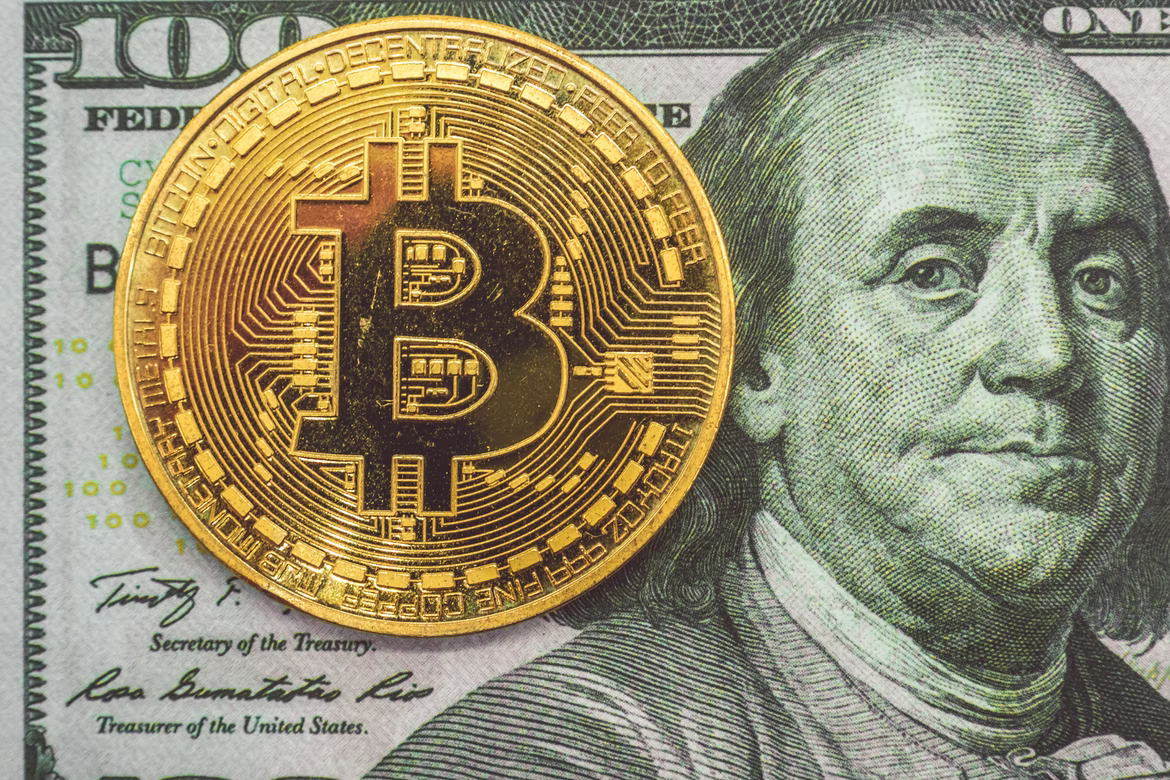Why Use Bitcoin?

The Advantages and Disadvantages of Digital Money
Now you have a general sense for what BTC is, and know about its history. But why use it at all? What is wrong with our current money?
BTC isn’t for everyone. It does require some amount of technical knowledge to purchase and use, as well as safely store your coins. It also is a volatile market, with rapid price fluctuations that can wreak havoc for investors. While these problems will lessen with time, they are still a barrier to many.
However, there are significant drawbacks to our current monetary system that make BTC appealing, and it can be summarized in one word: trust
Reducing the trust needed for transactions was one of the primary drivers for Bitcoin in the first place. As Satoshi’s original paper states in his concluding paragraph, “We have proposed a system for electronic transactions without relying on trust.”
In order to use money today, you must have a significant amount of trust in multiple institutions.
1. Banks. When using banks, you are trusting that they will be able to pay you back when you withdraw your money, and that they will not go bankrupt. As we have seen many times in history, bank runs and financial panics prove that you cannot be certain your money is safe inside a bank
2. Central Banks. The United States has the Federal Reserve, the European Union has the European Central Bank (ECB), Japan has the Bank of Japan; this is repeated the world over. Countries have central banks that control the issuance of their currency. Typically, this currency is not backed by any commodity (such as gold or silver) and therefore is only valuable by law – also called fiat money. We trust that central banks will not create too much fiat money, which results in inflation and higher prices for everybody. Unfortunately, since the financial crisis in 2008, central banks across the world have all printed more fiat money, which likely means we will face inflation in the future
3. Payment Processors. We trust that when we spend or accept money online, the payment processors will ensure there are no double spends, and that they will not reverse the transaction. We also trust that they will allow us to spend our money as we like, but this isn’t always true. Political advocacy group Wikileaks was trying to solicit donations in 2012, but due to pressure from governments payment processors (such as Visa and PayPal) refused to allow donations from their users.
4. Governments. Events in Cyprus during March of 2013 show how dangerous governments can be to our currency. Investors in banks had many of their assets confiscated in order to pay for the country’s debt problems. Also, governments tend to restrict the types of things that individuals can spend money on, such as drugs, prostitution, gambling, etc.
5. Identity Required. For banks, payment processors, and government, using currency typically requires being identified. Under the currency system, unless you are using cash in person, you must be identified, which can cause privacy and security problems.
How does Bitcoin reduce the trust necessary in these institutions? I’ll walk through each of them again.
1. Banks. No banks are needed when using Bitcoin. You manage the currency yourself, and if you take the right precautions you can be sure your Bitcoin are right where you left them.
2. Central Banks. Bitcoin are not created by any central institution, and they are created by the network at a predictable and steady rate. No need to worry about inflation.
3. Payment Processors. There are none. Bitcoin is peer-to-peer, meaning the transaction occurs directly from one user to another. No middlemen at all.
4. Governments. There is little that governments can do to negatively impact Bitcoin. They cannot confiscate coins from banks, and they can’t prevent users from spending their Bitcoin however they like. However, they aren’t completely powerless: they can target the exchanges, the points at which people buy or sell Bitcoin for fiat currencies. Still, their control over Bitcoin is substantially less than traditional currencies.
5. Identity Not Required. If you choose to be anonymous with Bitcoin, you can be. Even though all transactions are publicly viewable on the blockchain, the sender and receiver of the funds are only known by a string of numbers and letters. If you’re careful, you cannot be identified in the blockchain.

Using Bitcoin means not having to place trust in these institutions. While this argument was the primary selling point for Satoshi, there are many other advantages that Bitcoin offers as well.
Simple to use. While they may not be very easy to obtain, they are easy to spend. All you need to do is input the receiver’s public address (often done by scanning a QR code), enter the amount, and hit send.
Internet Integrated. Bitcoin is made for the internet, and it shows. It is very easy to integrate Bitcoin into online services. Many websites offer Application Programming Interface (API) around Bitcoin services such as the current price, or details on the blockchain. One good example is Bitcoin tip bot on Reddit, a popular website that aggregates content. This bot allows users to send Bitcoin to each other, within Reddit itself.
Fast. A Bitcoin transaction occurs as quickly as sending an email. Wiring money to another country could take days, but only takes seconds with Bitcoin. However, it is wise to wait for verification from the network – I’ll talk about that soon.
Secure. The cryptography behind Bitcoin is very advanced, and currently it isn’t feasible for anyone to break it. Nearly all theft of Bitcoin has occurred because of improper storage of the coins, or a hacking of the exchanges themselves. As far as anyone in the community knows, no one has ever broken the cryptography – and it isn’t for lack of trying! Several well known security experts have openly tried to expose security holes in the code, only to admit defeat.
Deflationary. There will only be 21 million Bitcoins ever created – we are at 11 million now – and this slow monetary growth means that the coins will likely increase in value over time. While there is no certainty that this increase relative to fiat money will continue, if the coins are in demand and used for transactions as they are today, the price should continue to slowly rise as fewer and fewer Bitcoin become available.
Because of these advantages, the number of people using Bitcoin has continually grown since its introduction in 2009. However, Bitcoin isn’t perfect. Here are some of the disadvantages.

Steep Learning Curve. Many people are turned off to Bitcoin before they even try it, due to the complexity of the issue. Learning about cryptography, the blockchain, mining, maintaining wallets, updating software - all of these things intimidate everyone but the most tech-savvy. Fortunately, as Bitcoin becomes more popular more effort is put into explaining Bitcoin in a more accessible way (as this book is doing!).
Obtaining Bitcoin. Getting your hands on some coins is still not a simple process. It can take days, or even weeks, to obtain them online. Again, this is changing – new exchanges are opening every month and as more people own Bitcoin themselves they are more able to sell them in person.
Confirmation Takes Time. Transactions occur quickly, but to be certain that the rest of the network agrees the transaction is valid, there is a wait for confirmation. For larger transactions, the recommended time is 6 blocks (explained later), and this typically takes an hour. Of course, you don’t have to wait that long – many users accept zero confirmations.
Protecting your Wallet. Just like in real life, if you don’t protect your Bitcoin wallet you can have your money stolen. Securing Bitcoin can be somewhat difficult, since any computer connected to the internet is potentially vulnerable. There are ways to secure your coins, but they do require some effort and technical knowledge (I’ll walk through them later).
Limited Acceptance. The number of merchants accepting Bitcoins is increasing daily, but it is only a small fraction of the overall economy. For online services especially, Bitcoin is gaining credibility and notoriety, but in other sectors it is only now making inroads. It may be many years – if ever – that Bitcoin is accepted as widely as other options such as Visa or PayPal.
Uncertain Future. While all signs point to Bitcoin becoming the first true currency of the internet, there are no guarantees. It may completely crash and burn, leaving hundreds of thousands of users with worthless coins.

Taking all the advantages and disadvantages into account, who is Bitcoin most useful for? Who shouldn’t be using it?
Historically, the most typical Bitcoin user was a technically adept young man in his late 20’s or early 30’s who has libertarian political leanings. The appeal is obvious: Bitcoin appeals to the tech-savvy, it is something new that is interesting, and it has political implications that tend toward less government control over society.
But this profile of a stereotypical Bitcoin user is beginning to break down as more people are interested in Bitcoin purely for its business benefits. The story of Bitcoin in 2013 has been the business interests that are starting to take Bitcoin seriously.
PayPal CEO John Donahoe made headlines when in May he told the Wall Street Journal, “It’s a new disruptive technology, so, yeah, we’re looking at Bitcoin closely. There may be ways to enable it inside PayPal.” Peter Thiel’s Founders Fund invested $2 million in the Bitcoin company BitPay. Fred Wilson of Union Square Ventures – early investor in Twitter and Kickstarter – invested $5 million in another Bitcoin company, Coinbase. Cameron and Tyler Winklevoss, of Facebook fame, invested heavily in Bitcoin, reported capturing 1% of the entire market.
These investors aren’t interested in Bitcoin because they are passionate about cryptography, or because of their political leanings – they recognize that it might be the currency of the internet in the future, and want to be involved in that process.
So, should you use Bitcoin? If you primarily transact business offline, then I wouldn’t make the investment now. Wait a few years until the big investors have created a larger infrastructure, and the Bitcoin economy has grown. Then there will be a smaller learning curve, fewer barriers to obtaining coins, and you won’t need to understand the technology.
However, if you buy or sell goods or services online, I would familiarize yourself with Bitcoin now. For a seller, an active community of Bitcoin users already exists, and accepting Bitcoin for your services is a low cost way to appeal to an emerging market. As a buyer, transactions are simple, quick, and don’t require any fees or signing up with your personal information. Using Bitcoin online will make you understand why it is dubbed the currency of the internet.
There is a reason to have Bitcoin apart from being a part of the internet economy – investment. There are two primary reasons people invest in Bitcoins.
1. If central banks across the world continue to devalue their currencies, then holding Bitcoin may protect against inflation. Despite the valid concern over inflation, I would caution against significant investment in Bitcoin as an inflation hedge. The currency is still young and needs to prove itself; if we did face a severe economic downturn it is unknown how widely accepted Bitcoin would be.
2. If Bitcoin becomes widely adopted, even replacing some national currencies, then it will become incredibly valuable. Since the supply of Bitcoin will never exceed 21 million, if the demand for coins rises because it is widely used, then the price will necessarily increase as well. Some predict prices in the thousands, or even tens of thousands, per 1.0 BTC. I don’t believe it is likely to ever achieve that amount of acceptance. However, the potential upside is significant, so as long as you can afford to lose the investment, it may be a speculation worth making.
FROM: prowithBTC


